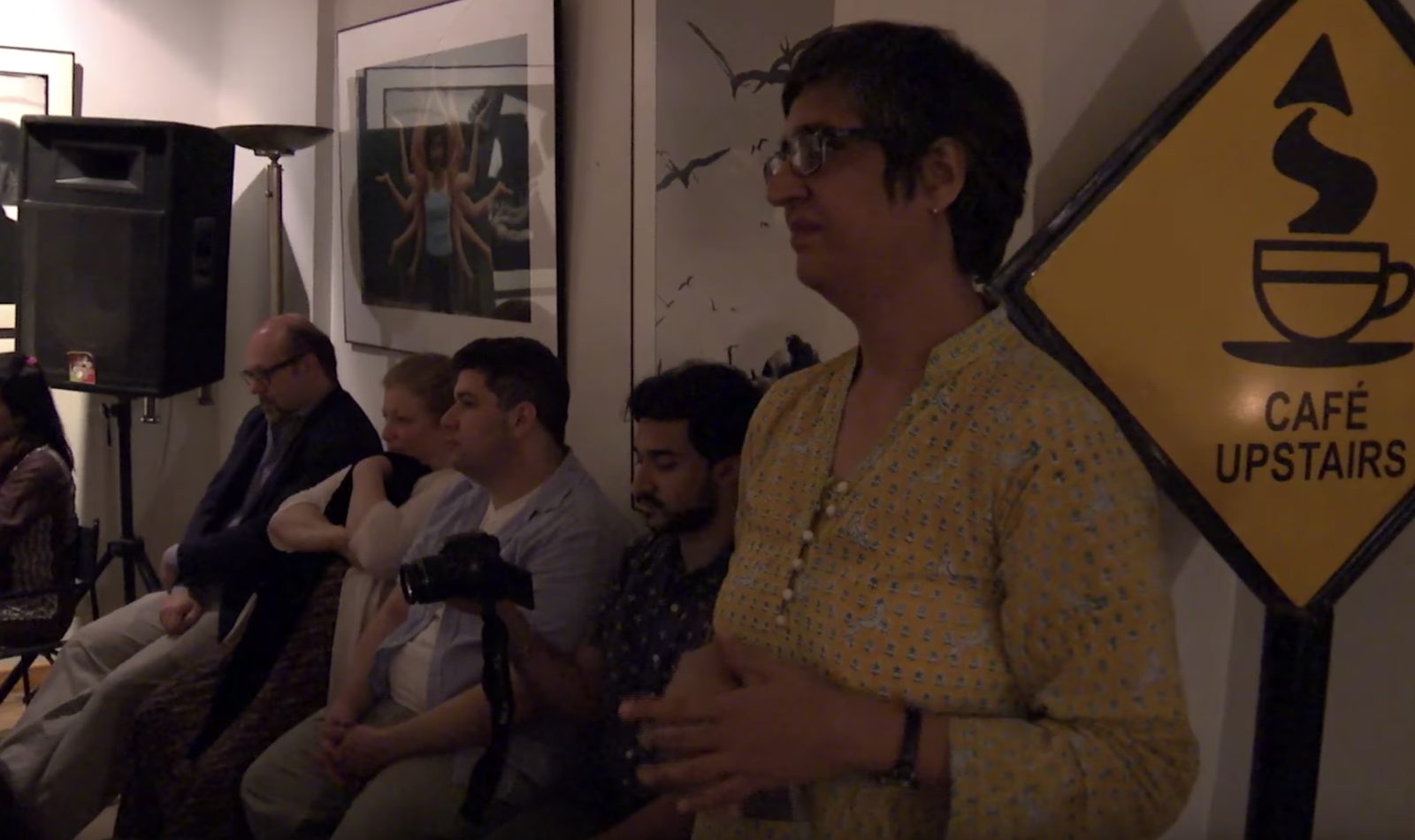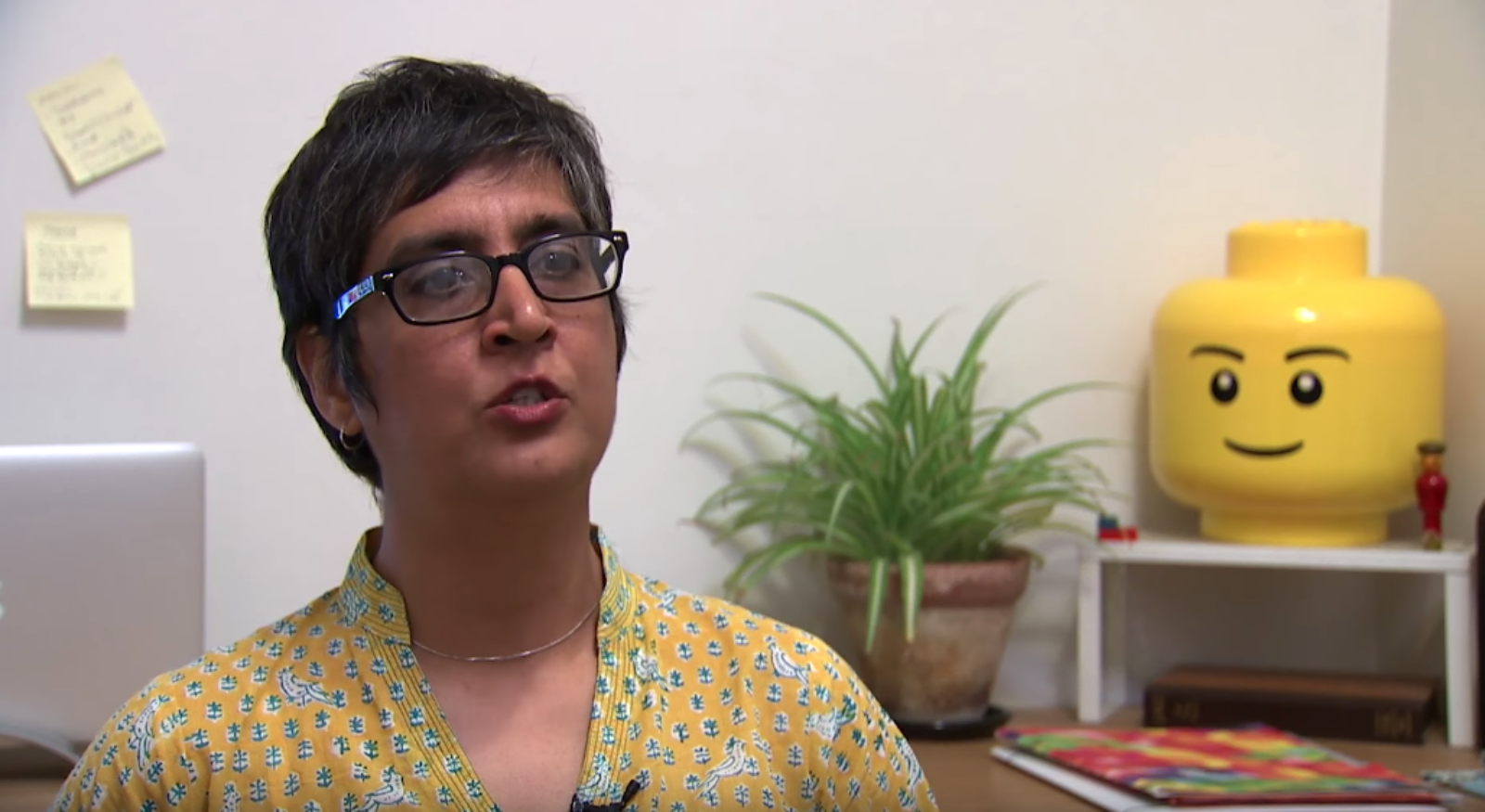GWEN IFILL:On Friday evening, Sabeen Mahmud, a leading Pakistani human rights activist, was shot and killed outside the Second Floor, the cafe she ran in Pakistan’s largest city, Karachi. Her mother was seriously wounded in the attack.Shortly before her killing, Mahmud posted a photo online of an event she’d just held at the cafe, which was known for its lively political and arts discussions. Friday, the topic was killings and the disappearance of political activists in the province of Baluchistan, allegedly carried out by the Pakistani military.Just last month, NewsHour correspondent Fred de Sam Lazaro spoke with Mahmud at her cafe about her work, its dangers, and the space she created.
SABEEN MAHMUD, Human Rights Activist:People get an opportunity to take their minds off of whatever is going on, and we’re an open space. And it’s open to all and anyone who chooses to walk through its doors.And it’s a model. It’s a template for other people to create similar public spaces in other areas of the city. And maybe, you know, those are the only — that that is a respite that we need from the violence and the anguish sometimes that you can’t help but feel.I have a very cavalier attitude to fear, but maybe I — I don’t care. I just feel, when the time will comes, the time will come.
GWEN IFILL:Sabeen Mahmud was buried Saturday, mourned by more than 200 colleagues, as her murder was condemned by Pakistan’s prime minister and by the United States.To tell us more about her life and work, Fred de Sam Lazaro joins me now.Fred, how did you come to know of Sabeen Mahmud?
FRED DE SAM LAZARO:Well, Gwen, we had gone to visit her because she really was an icon for a lot of young people in Pakistan, and particularly in Karachi.She was a tech entrepreneur earlier in life. And she was only 40 when she was killed. But there is a growing techie culture in Karachi. And that was the focus of our story. We will have that story on pretty soon on the NewsHour. And so I had gone to her to talk a little bit about that whole scene and about what life was like in Karachi for someone very connected to the world, and yet hemmed in by all the political turmoil that Pakistan is roiled in right now.
GWEN IFILL:She talked to you about being cavalier about fear. Did she recognize the risk?
FRED DE SAM LAZARO:I think she was well aware, acutely aware of the risk, because this is one of the world’s most violent cities.There are a number of targeted killings, particularly of people who are considered liberal and people who dare to venture into no-go areas, and Baluchistan appears to be one of those.She was, of course, fearless. Karachi is a place where a lot of people have armed escorts. She did not. She traveled very freely. And, as she said on the tape, when the time comes, the time comes.
GWEN IFILL:One of her friends, you quoted her online in your piece. One of her friends is quoted as saying that she was silenced. Do we know who did the silencing? Are there any thoughts about what the cause of this was?
FRED DE SAM LAZARO:There’s blame that — there are fingers being pointed in all kinds of direction.One of the biggest frustrations, Gwen, is that there’s a climate of impunity. And no one knows for sure or can intelligently point to suspects in this kind of a climate. One thing that seems to be a consensus is, it’s highly unlikely that the people who killed her will ever see justice.
GWEN IFILL:And so, when something like this were to happen here, we assume there’s a next step, a criminal justice system which steps up and gets to the bottom of it. Is there any evidence of that so far?
FRED DE SAM LAZARO:There hasn’t been from similar kinds of episodes.We have seen a number of people in the so-called liberal establishment in Pakistan who have been felled by gunfire, social workers, political leaders who have dared speak out, for example, against the blasphemy law, which is very controversial, very, very little follow-up to that. And, of course, the media buzz dies down.There is a great groundswell of deep mourning right now. And how much that might sustain an ongoing judicial process is an open question. People are doubtful that the real culprits will ever be found, however.
GWEN IFILL:Well, Fred, you always bring us these untold stories. And, in this case, it was incredibly and, sadly, timely actually.So, thank you very much for that. And we look forward to seeing your complete report later on the NewsHour.
FRED DE SAM LAZARO:Thanks, Gwen.
Assassinated
Human rights activist Sabeen Mahmud was murdered outside her cafe in Karachi, Pakistan, on Friday. Her death came shortly after she hosted a talk on the killing and disappearances of political activists in Pakistan. Special correspondent Fred de Sam Lazaro, who interviewed Mahmud last month, joins Gwen Ifill to discuss Mahmud’s life and death.


